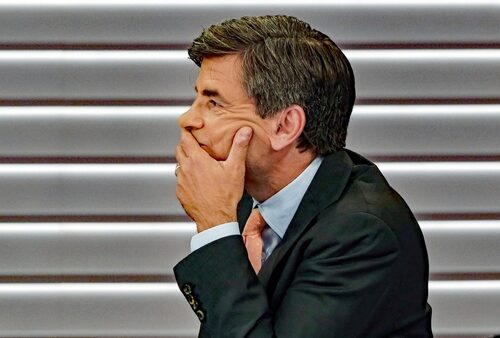
Minneapolis Businesses Sue City Over Policing Policies
Several Minneapolis businesses located in the area now known as George Floyd Square have taken a bold step in holding the city accountable for its policing policies. These businesses, including the well-known Cup Foods, have filed a lawsuit against the city, alleging a marked decline in law enforcement presence and increased criminal activities, severely impacting their operations and safety.
The heart of the lawsuit lies in the claim that the city, along with Mayor Jacob Frey, the city council, and the Minneapolis Police Department, has significantly limited police response in the area. This decision, the businesses argue, was made after the death of George Floyd in May 2020, which led to widespread protests and civil unrest. The lawsuit, seeking $1.5 million in damages, highlights a concerning trend: an area once bustling with activity has now earned the notorious nickname “No Go Zone” due to its high crime rates and perceived lack of police protection.
Several businesses sued the city of Minneapolis due to a lack of policing in George Floyd Square.
They claim violent crime is running wild as police avoid the area where George Floyd died. @DailyCaller https://t.co/9wOGxKhlPg
— Brandon P (@Brandopinione) November 30, 2023
The response from the city’s end, while acknowledging the challenges faced by businesses, revolves around the support extended during the post-Floyd unrest and the COVID-19 pandemic. The city touted its initiatives, including forgivable COVID loans and technical assistance, as substantial support for affected businesses. Additionally, the city invested $1.5 million in loans for businesses in the George Floyd Square area. However, as argued by the plaintiffs, these measures fall short of addressing the fundamental issue of safety and security.
The lawsuit also touches upon the controversial decision to block the intersection near George Floyd Square with concrete barriers for over a year, a move criticized for hindering customer access and contributing to the area’s decline. This lack of accessibility, coupled with the reduced police presence, has created a challenging environment for businesses to operate successfully.
On the other side of the spectrum, residents like Richard Gaddes and Michael Olson present contrasting views of the neighborhood. Gaddes laments the decline in safety, recalling a time when police presence was markedly reduced. Conversely, Olson emphasizes the strong community spirit and the disconnect between public perception and the on-ground reality of living in the neighborhood.
While refraining from commenting directly on the lawsuit, the city has stood by its strategy for reopening the street and the safety protocols it claims to have implemented. The mayor’s office emphasized their planned approach to reopening the area, allegedly ensuring no harm to residents and maintaining safety.
This lawsuit opens a critical dialogue on balancing civil liberties and law enforcement, especially in areas marked by significant historical events. The businesses’ plea for improved policing reflects a broader concern over public safety and the effectiveness of city policies in ensuring a secure environment for both businesses and residents. As the legal proceedings unfold, the eyes of the nation will be on Minneapolis, watching how this conflict between maintaining public order and political posturing to support progressive narratives plays out in court.


